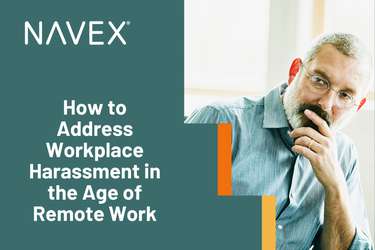This blog is part of the You Can't Delegate Ethics campaign. The campaign posits that systemic change on the issue of sexual harassment will occur only when good people in power take responsibility for the issue and create workplaces that do not tolerate it.
If eliminating sexual harassment and discrimination in the workplace is not already on the list of board action items, our two youngest generations of employees plan to put it there – and quickly.
Much has been written about how millennials will affect the modern workplace. The now famous memos, blogs and video testimonies are likely just the tip of the iceberg. Just years ago, many of these forms of communications had little sway, and now they are toppling corporations.
Young people have been told that they can change the world, and they believe it and are acting on it.
Members of the post-millennial generation aren’t far behind and might make an even larger impact. Just look at the demonstrations across the country in recent days following the mass shooting in Florida. I note this not to start a debate about guns but to showcase the fervor of the people who will increasingly be applying for jobs in the coming years. These young people have been told that they can change the world, and they believe it and are acting on it. When those in regulatory and organizational authority fail to demonstrate an appropriate response, they appear unlikely to simply go away quietly. And for that, we should be grateful.
Like many of us, emerging leaders are idealistic, and they also have a unique capacity for activism. This appetite for fueling change has led us to a tipping point on the issue of discrimination and sexual harassment and, of course, given rise to movements like #MeToo and NAVEX Global’s “You Can’t Delegate Ethics.”
This generational inflection point surrounding sexual harassment makes it more important than ever for boards of directors to understand that they can’t delegate ethics on the issue. Given the clear activism we’re seeing in young people, directors need to think even bigger and include matters related to diversity, inclusion and corporate culture. These aren’t just social justice issues, akin to corporate social responsibility. These are fiduciary responsibilities with very real consequences for shareholders. Just ask members of Wynn’s board of directors in the wake of what happened to their stock after that scandal. The question of “when to disclose misconduct” is far from the right question. For boards, it should be finding ways to prevent it.
Soft Skills Are Part of Today’s Fiduciary Responsibilities
Let’s set aside, for a moment, any arguments about doing the right thing for its own sake. We’re well past the point where companies can ignore the financial burdens of a huge reputational hit. And members of boards have a fiduciary duty to prevent financial setbacks.
With that in mind, board members need to know the answers to the following four questions about their organizations:
- Do our employees feel safe, and able to speak their minds?
- Do our employees feel heard?
- Do our employees feel decisions are made fairly?
- Do our employees feel that the decision-making process is transparent?
Some of these matters revolve around whether employees are aware of a policy that would lead to the firing of a perpetrator in a sexual harassment matter (as just one applicable example).
To be able to answer these questions and to see problems before they can wreck a company, directors should make sure they’re getting all the information they need. Too often the compliance-related reports they receive are limited to the volume of reports from employee hotlines. Those numbers are essential, but that data on its own isn’t enough. Boards need to understand, with help from their compliance leaders, how compliance program data integrates with other data points such as employee retention, employee engagement and employee experience, and other metrics indicating organizational health, and tracks back to the questions above.
The Right Decisions Need the Right Information
Program data need to be supplemented with content from reports, synopses of employee attitudes, rehashing of off-the-cuff remarks and an overview of the general sentiment imbuing the organization. The new generation of “employee engagement” is now “employee experience” and with the onslaught of AI tools scouring social media and websites like Glassdoor, data about employee attitudes can be public before anyone inside knows. Given this, when it comes to getting the full picture or an organization’s culture regarding discrimination and sexual harassment, board members need to ask for more information, and sooner.
If I were a board member, I’d ask that a team from ethics and compliance, finance, strategy and human resources work together to create a robust report delivered regularly to directors, noting cultural risks and integrating insights from across the organization. By connecting the dots from all of those pieces of information, the board should be able to see broad patterns to make proactive decisions when it comes to company culture. My experience is that very few companies do this – though those with HR committees are more likely to at least be in the ballpark.
Without the necessary information, boards could be unknowingly allowing the creation of cultures that are in effect petri dishes for scandals down the road. And if boards are worried about the fallout of those kinds of problems now, just wait until the next generation of workers charges in and turns it activist tendencies on the corporate status quo.
Related Articles
- People Are the Cause, and the Solution, to Sexual Harassment in the Workplace
- Directors Need to Step Outside the Boardroom on the Issue of Sexual Harassment
- You Can’t Delegate the Ethics of Respect & Dignity
- We Need to Talk About Gray Areas When Addressing Sexual Harassment
- The Sexual Harassment Scandals are a Watershed Moment but We’ve Had Those Before
- You Can’t Delegate Ethics on the Issue of Sexual Harassment









